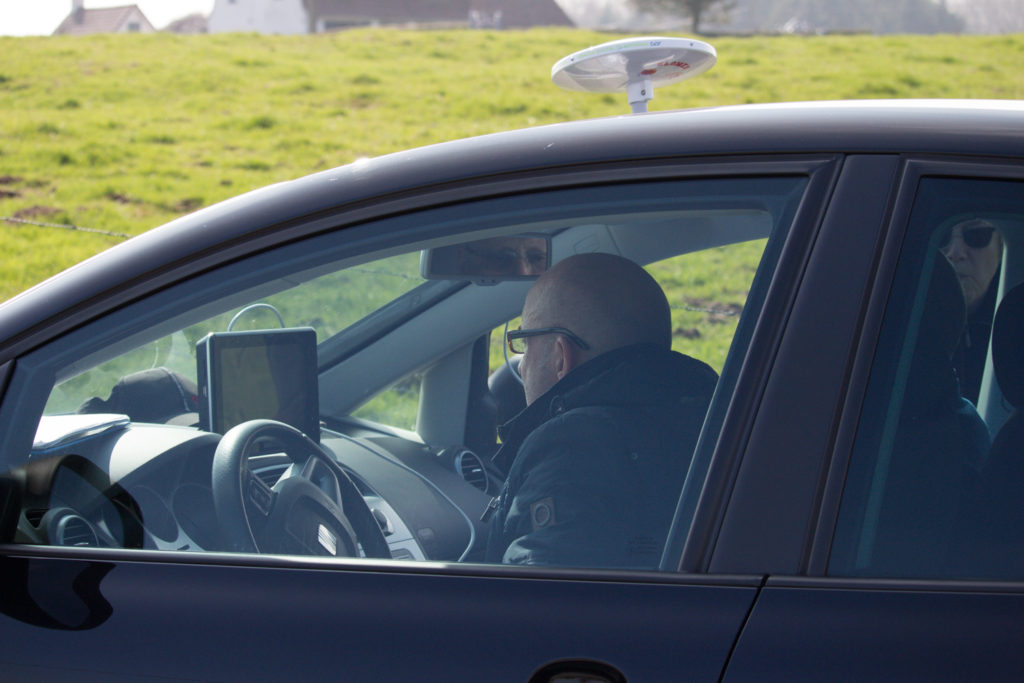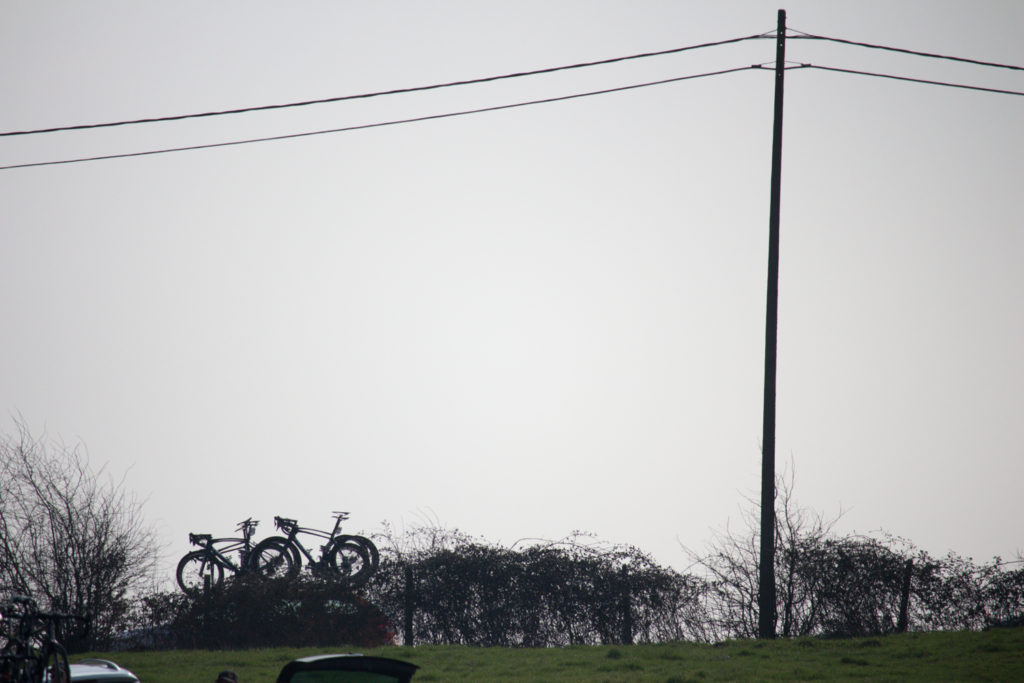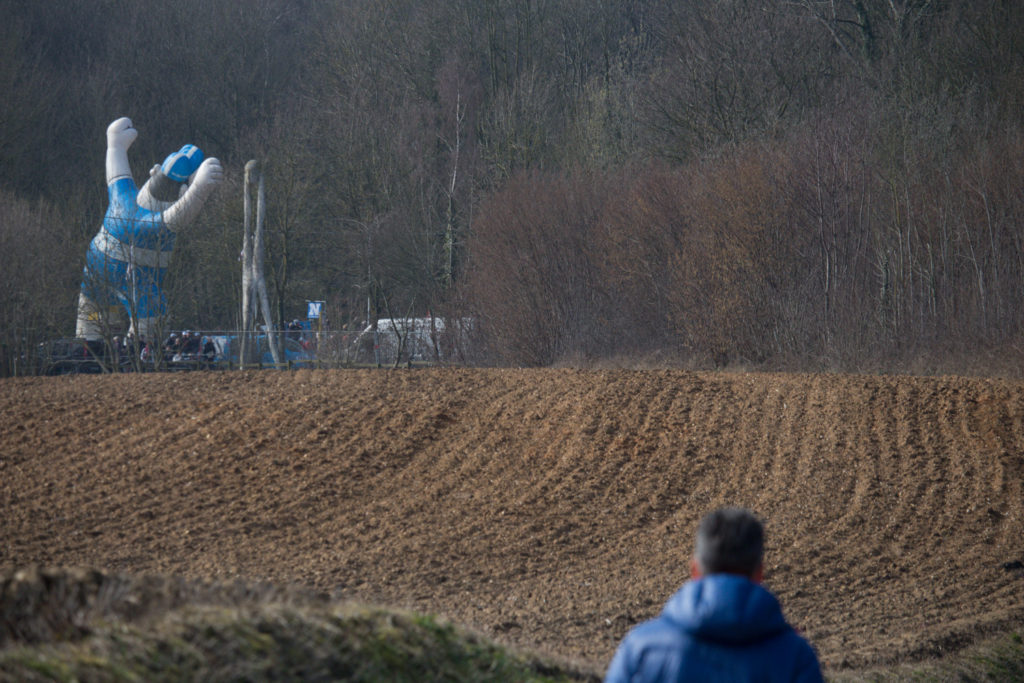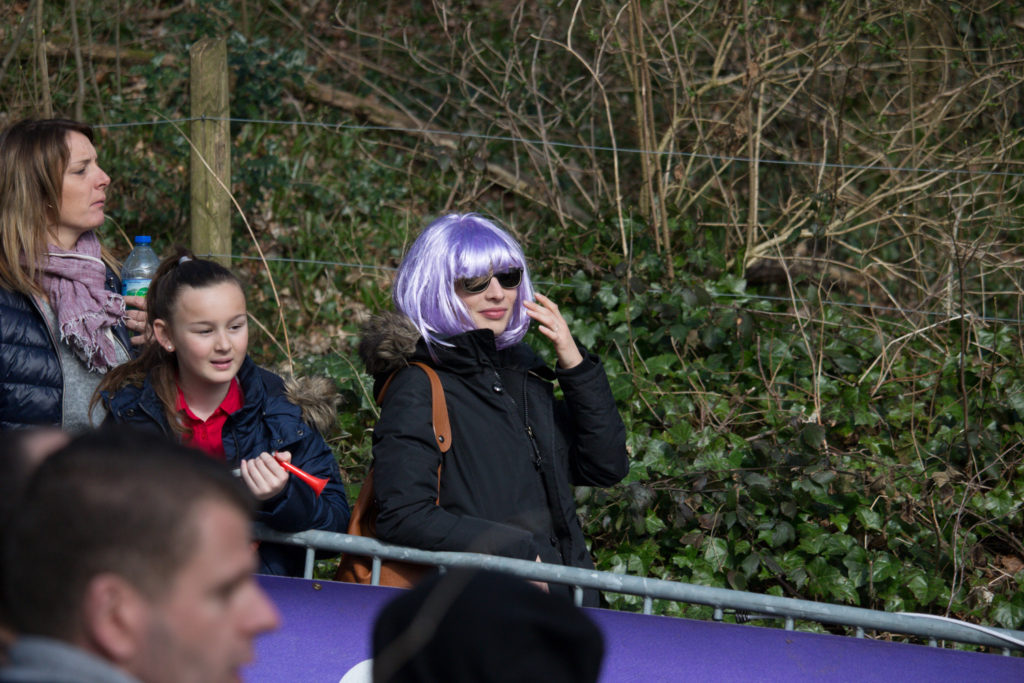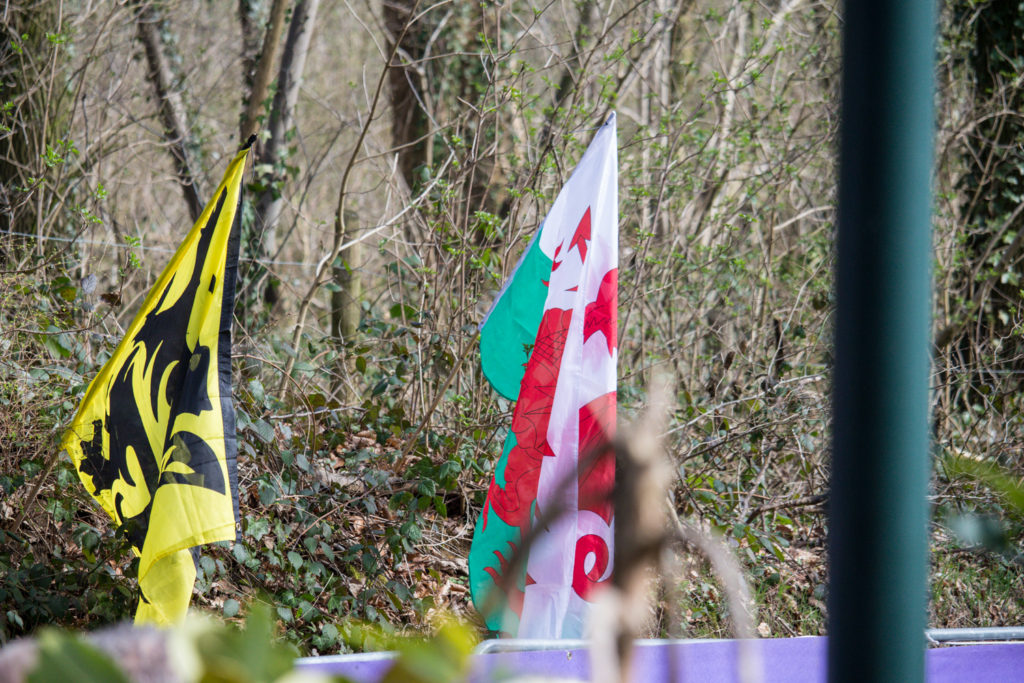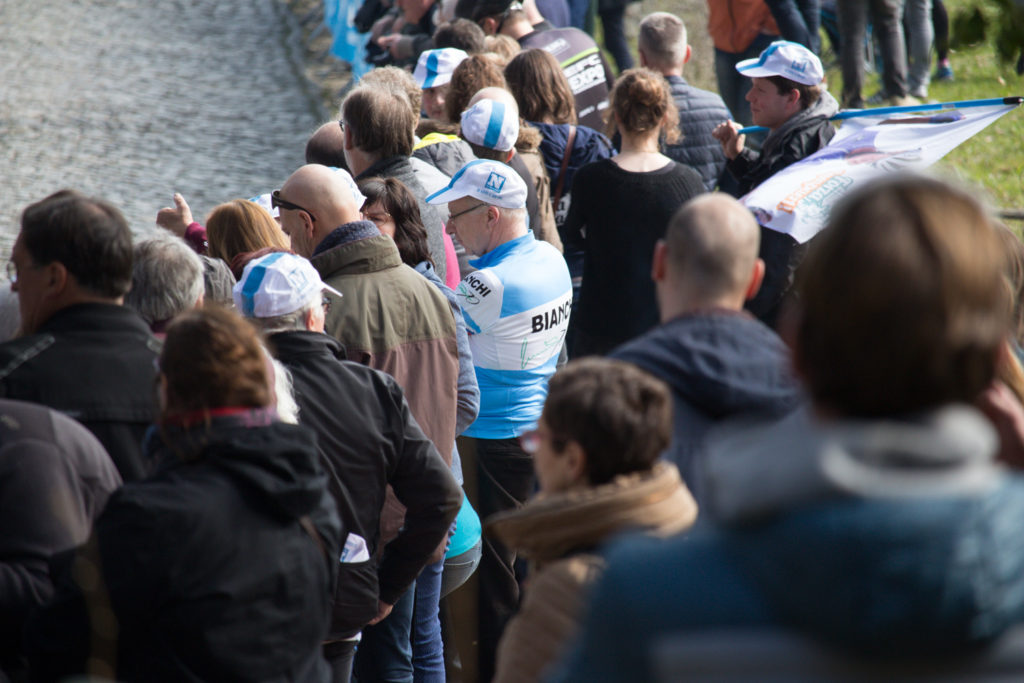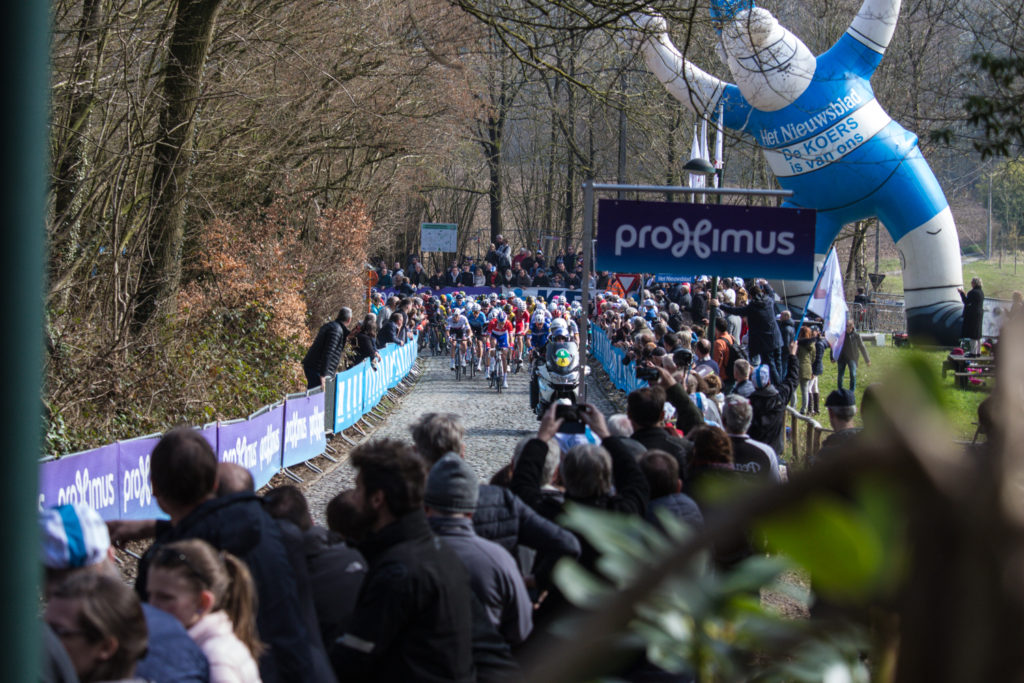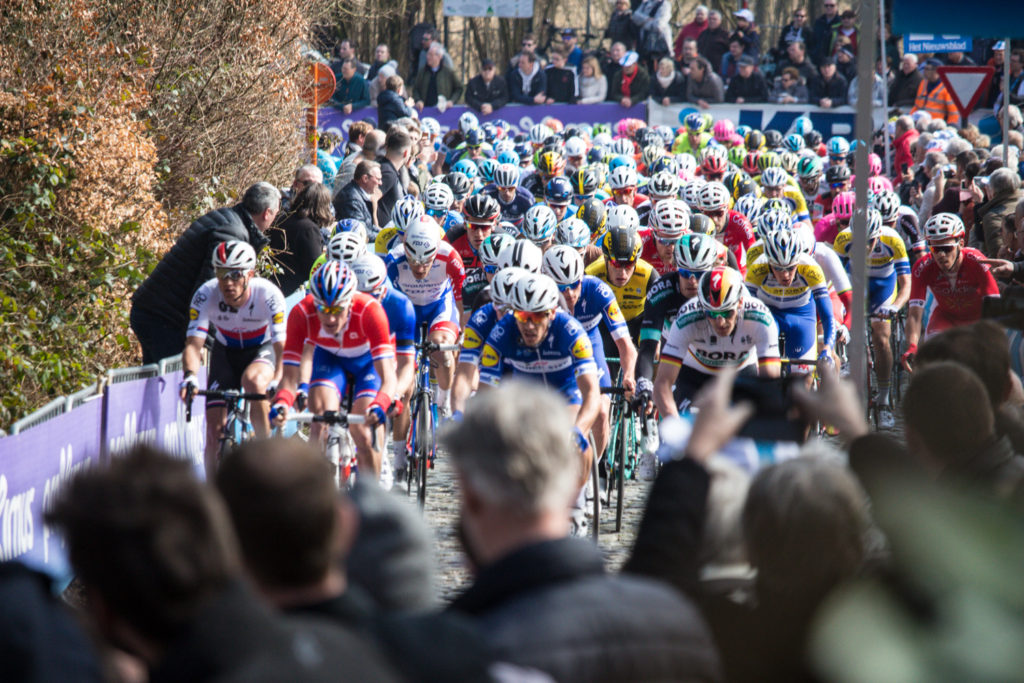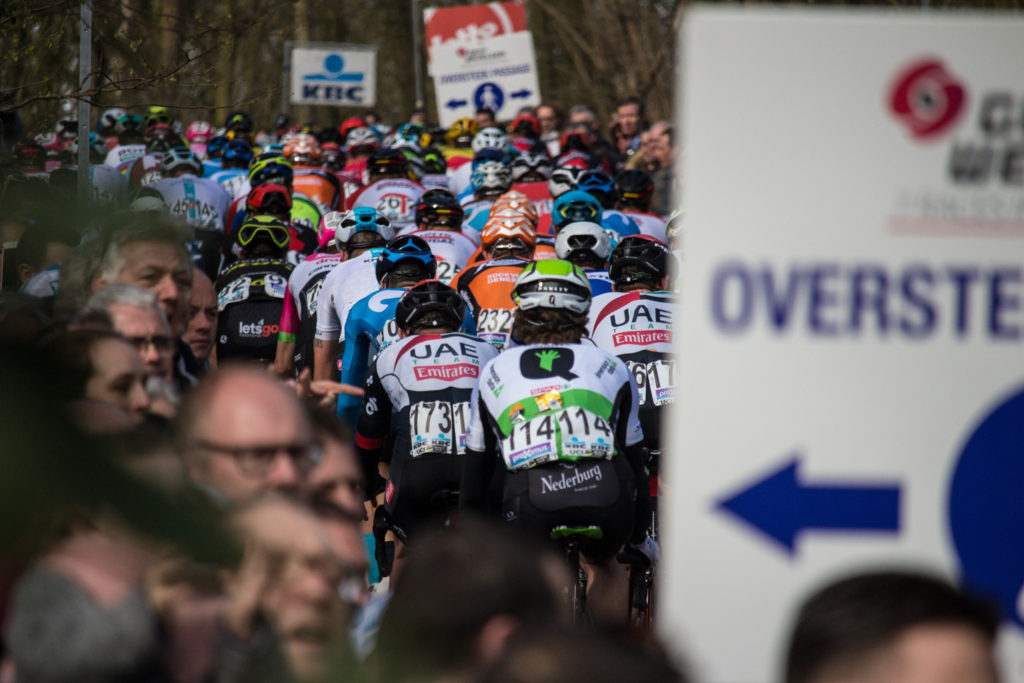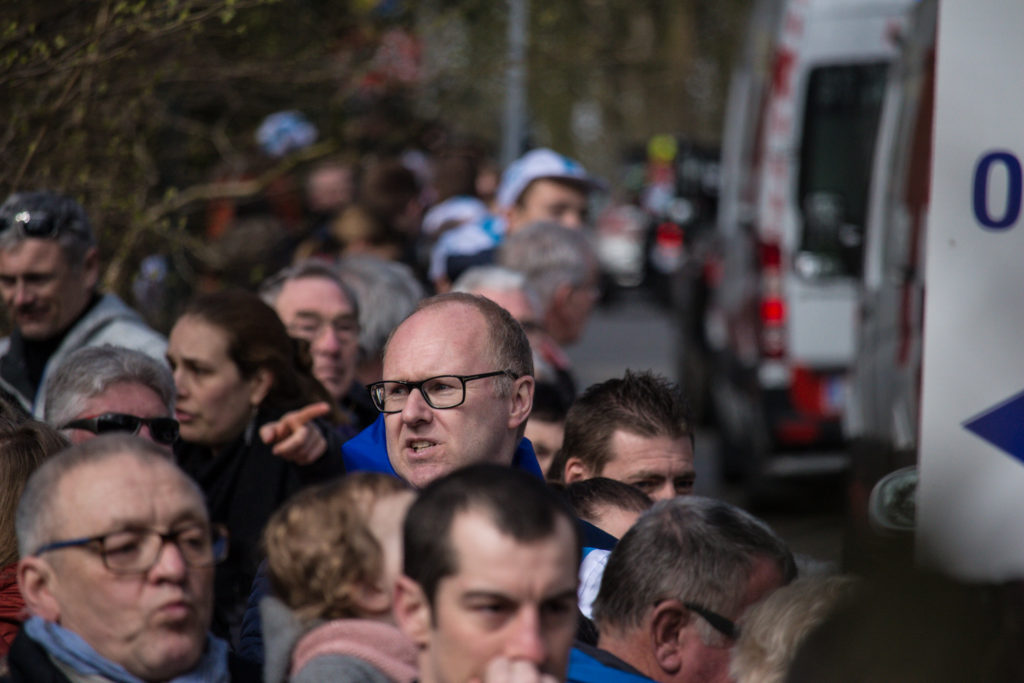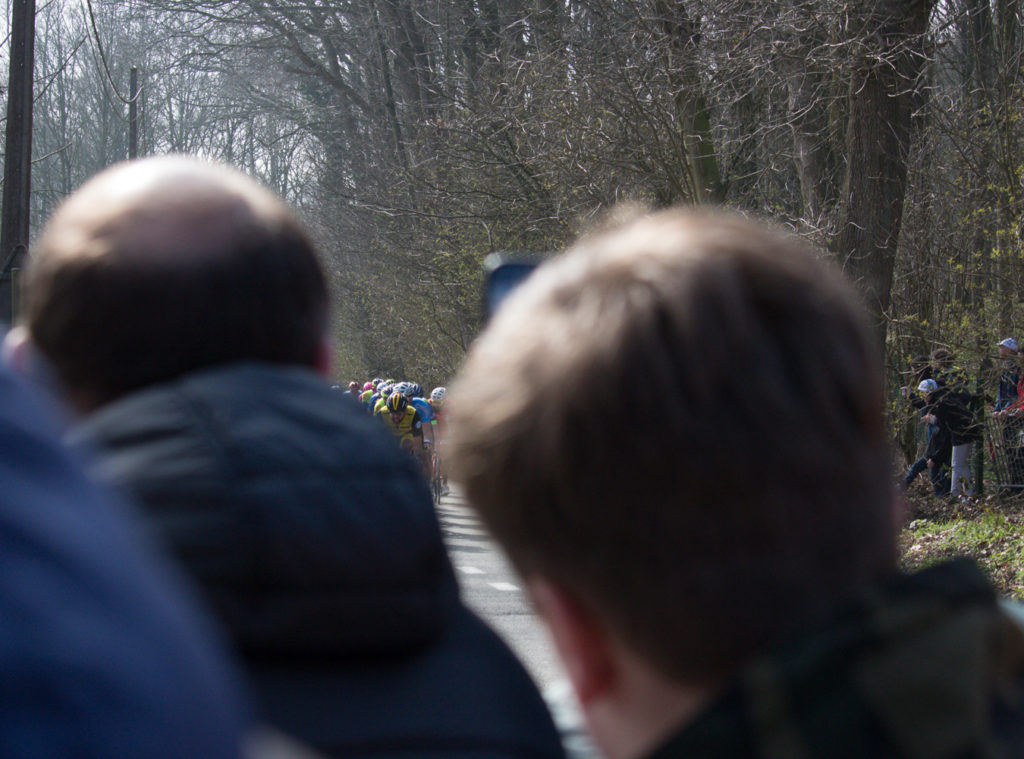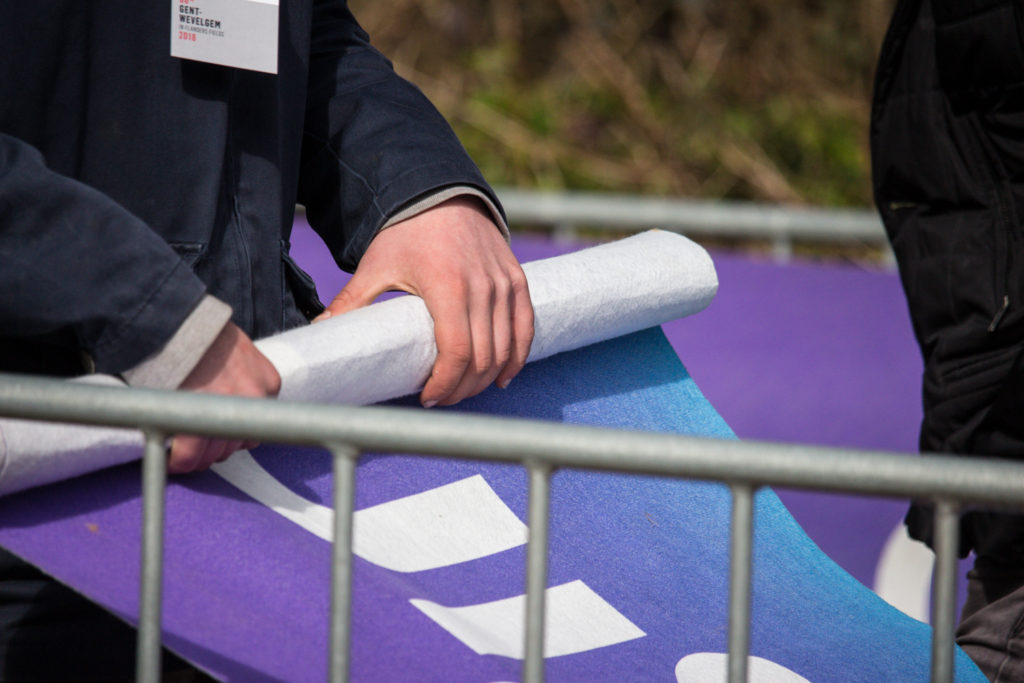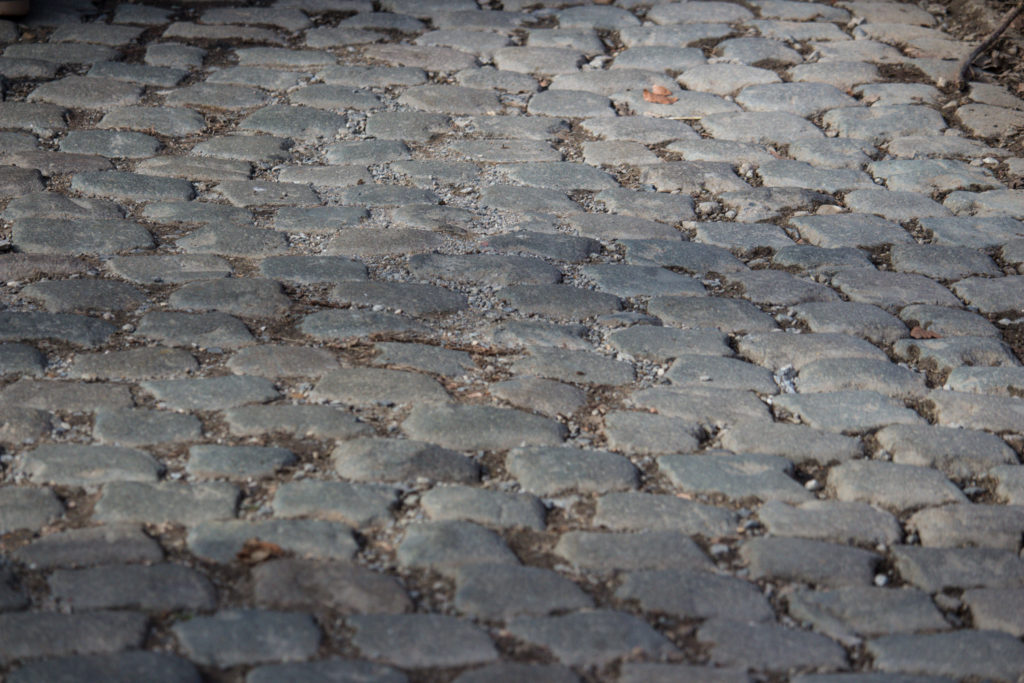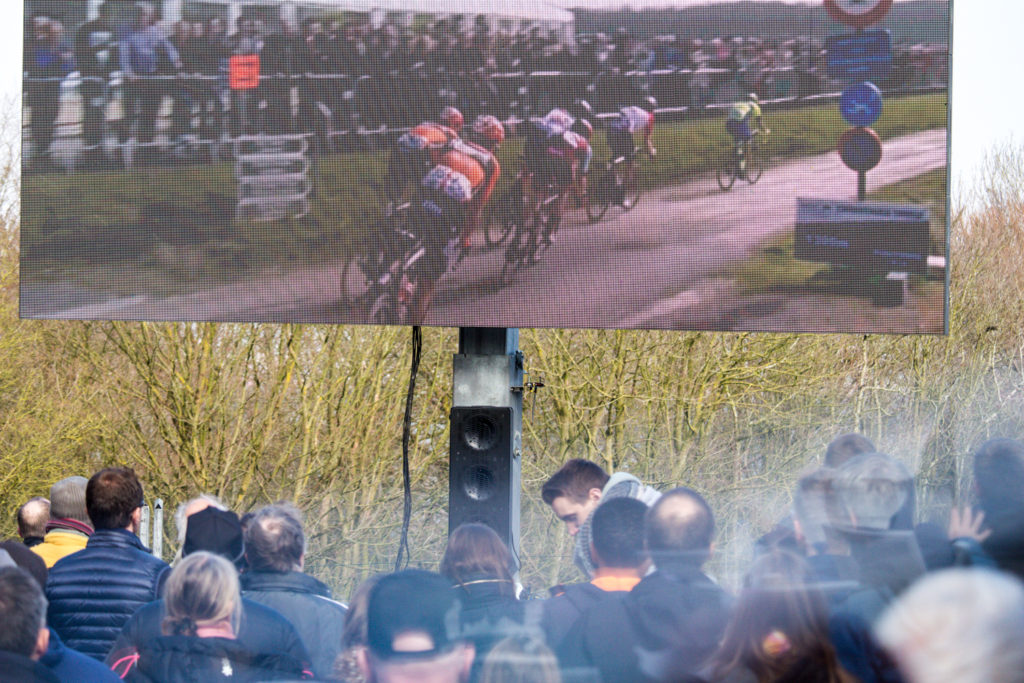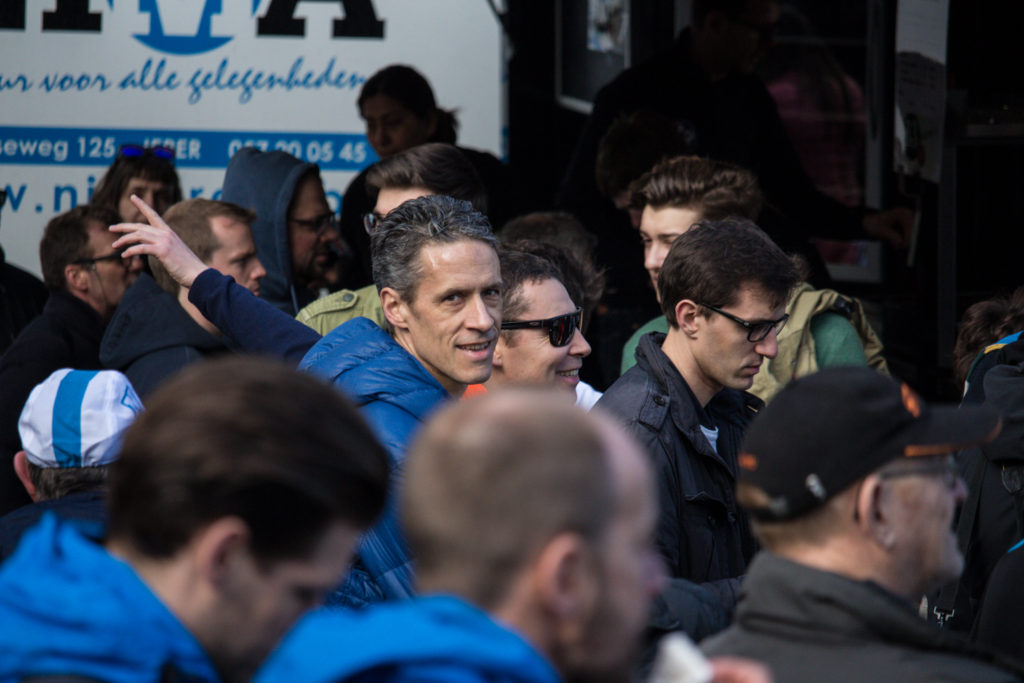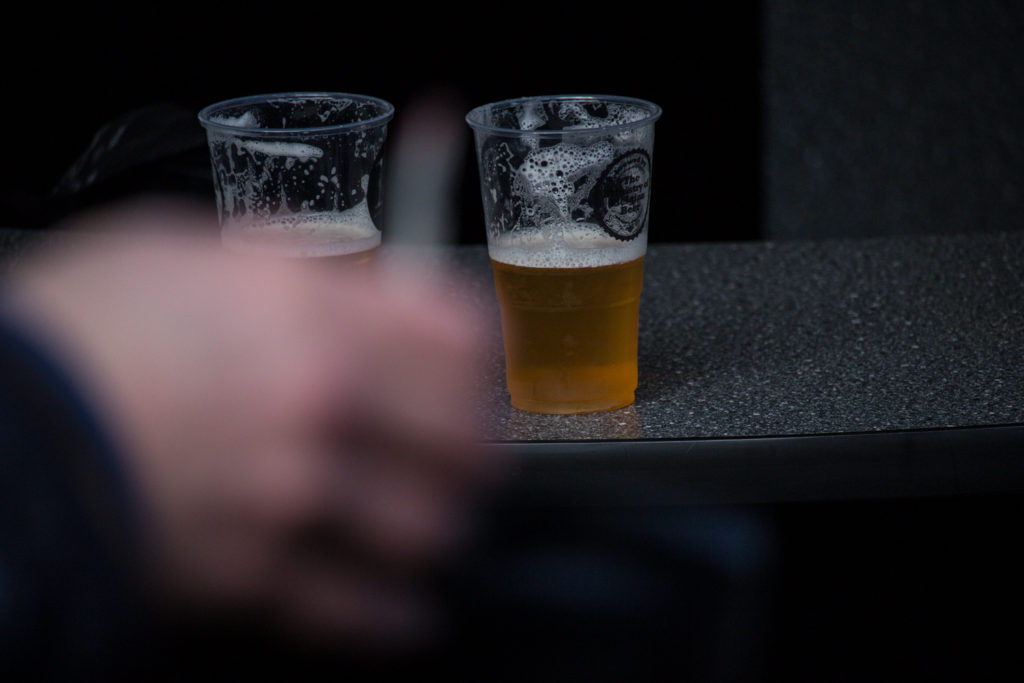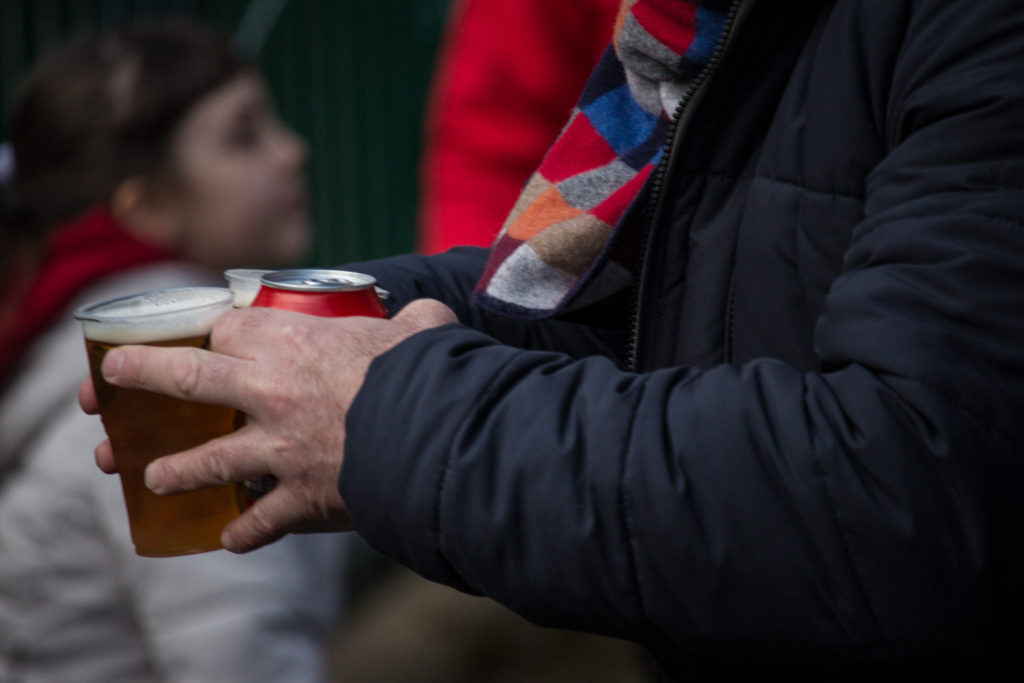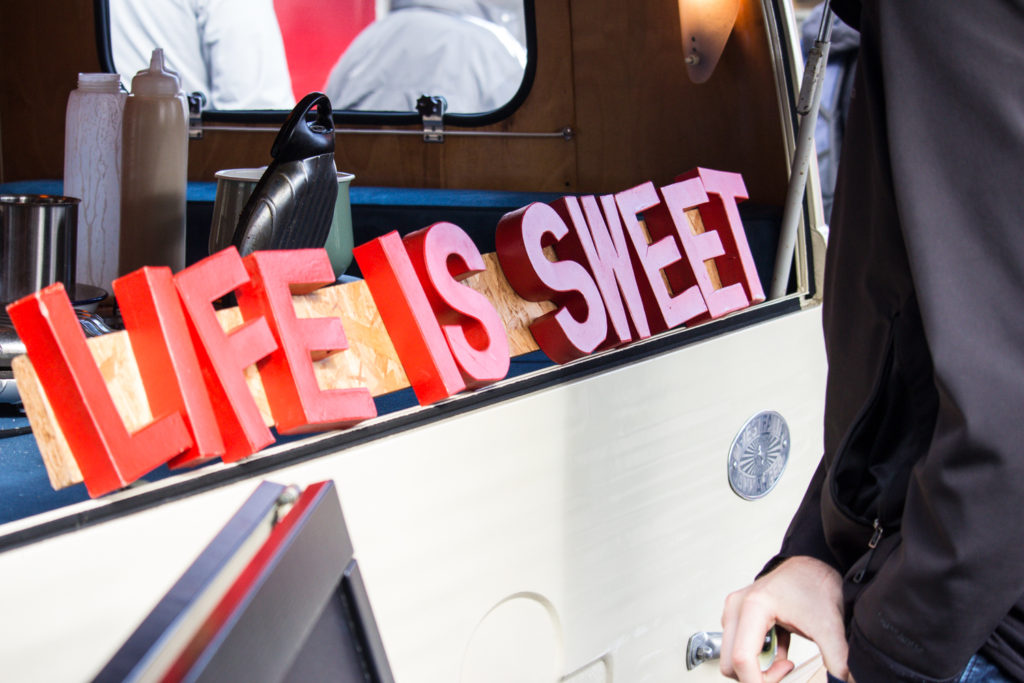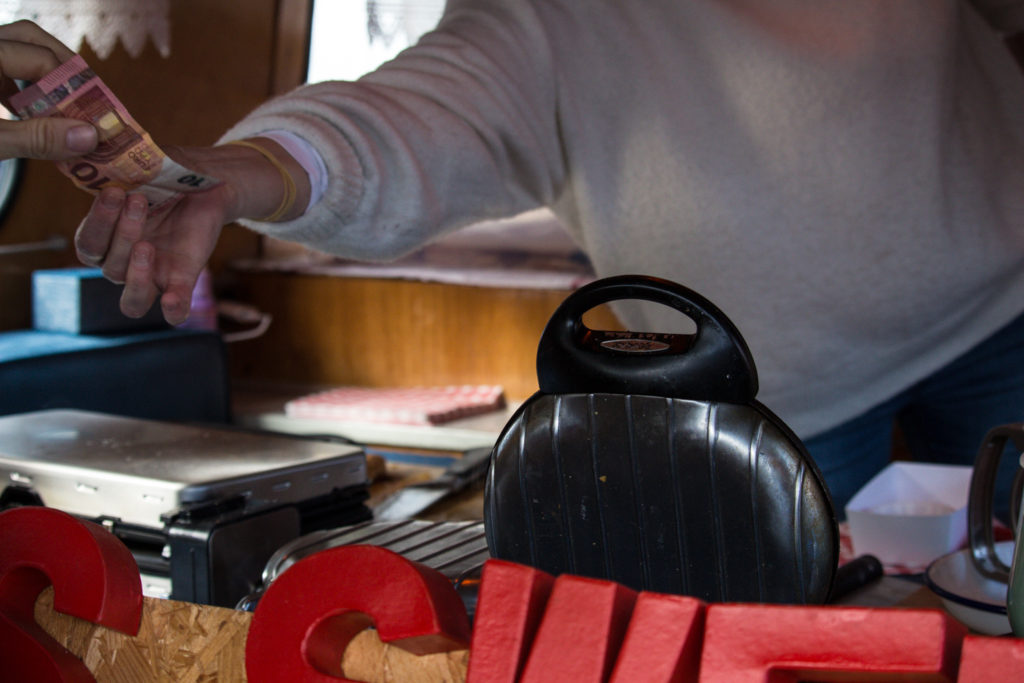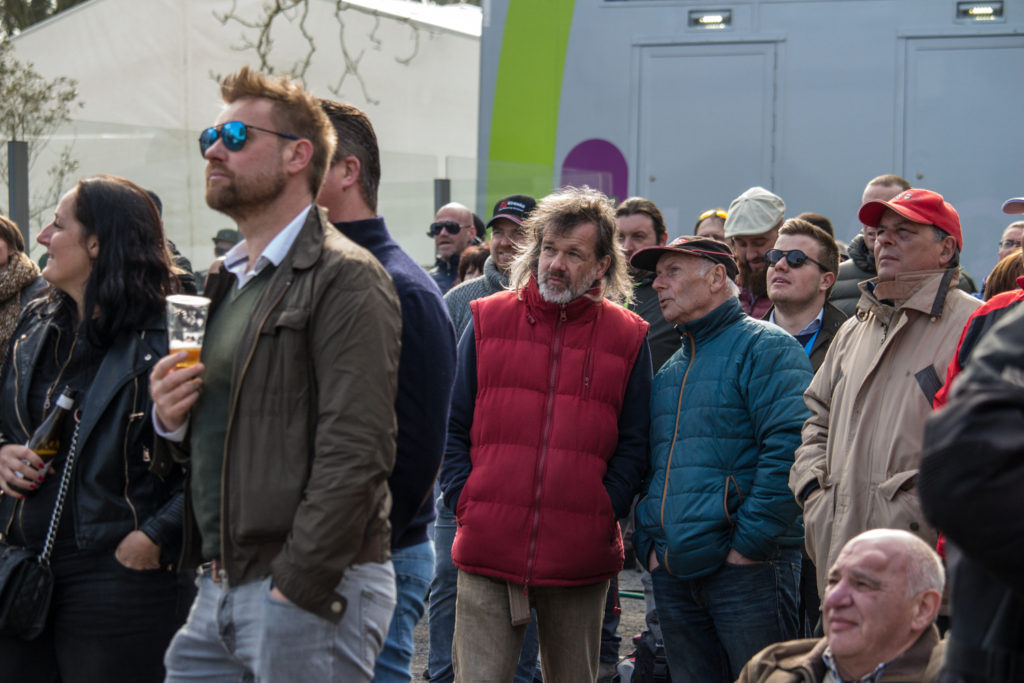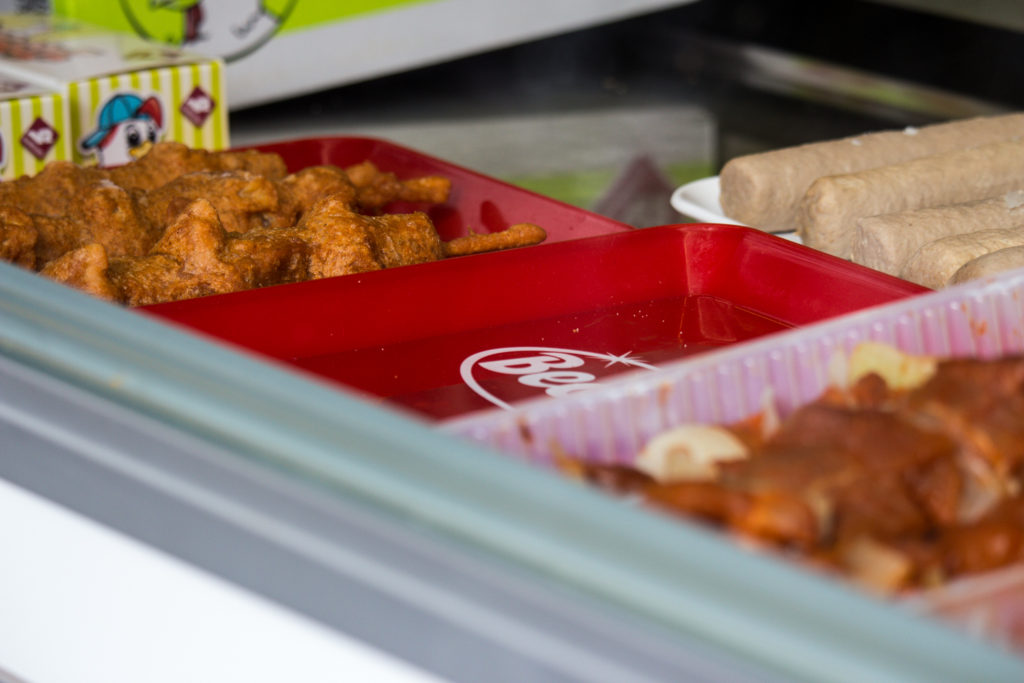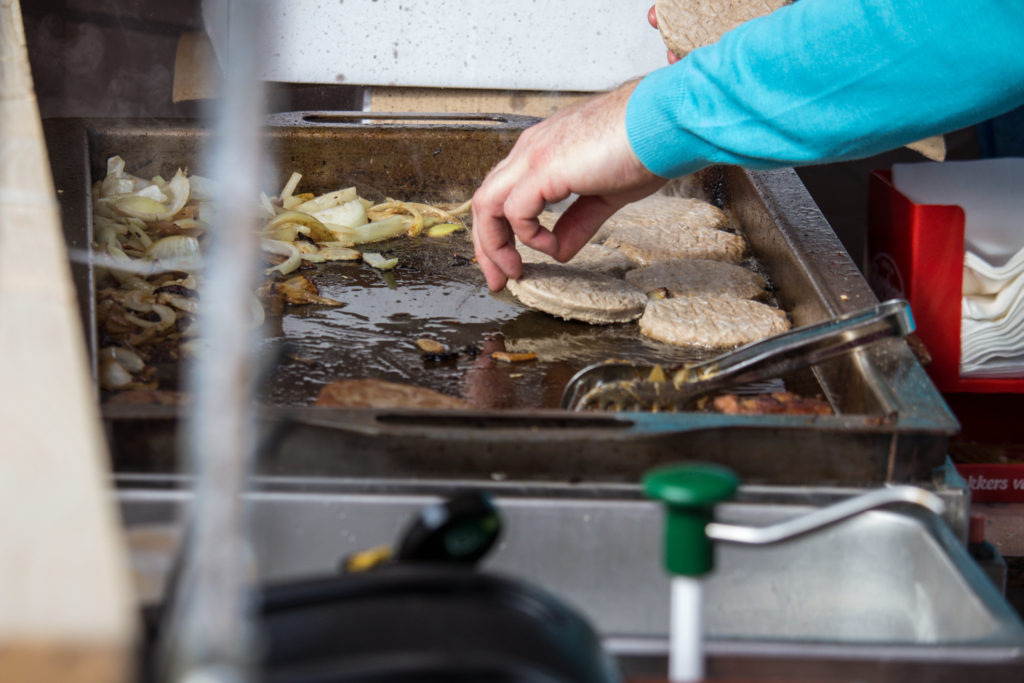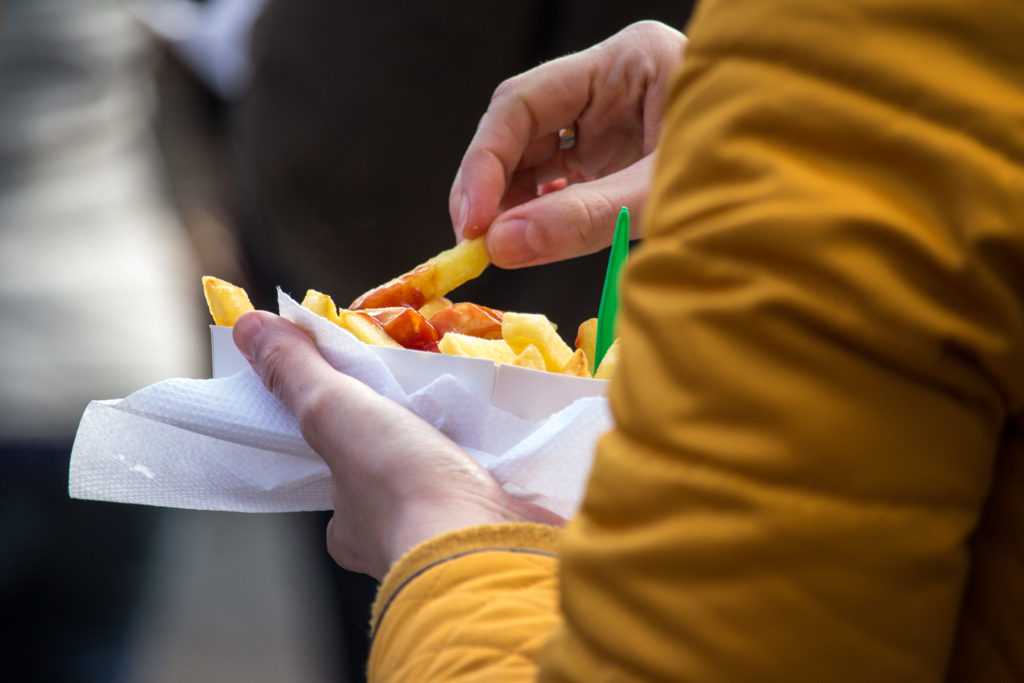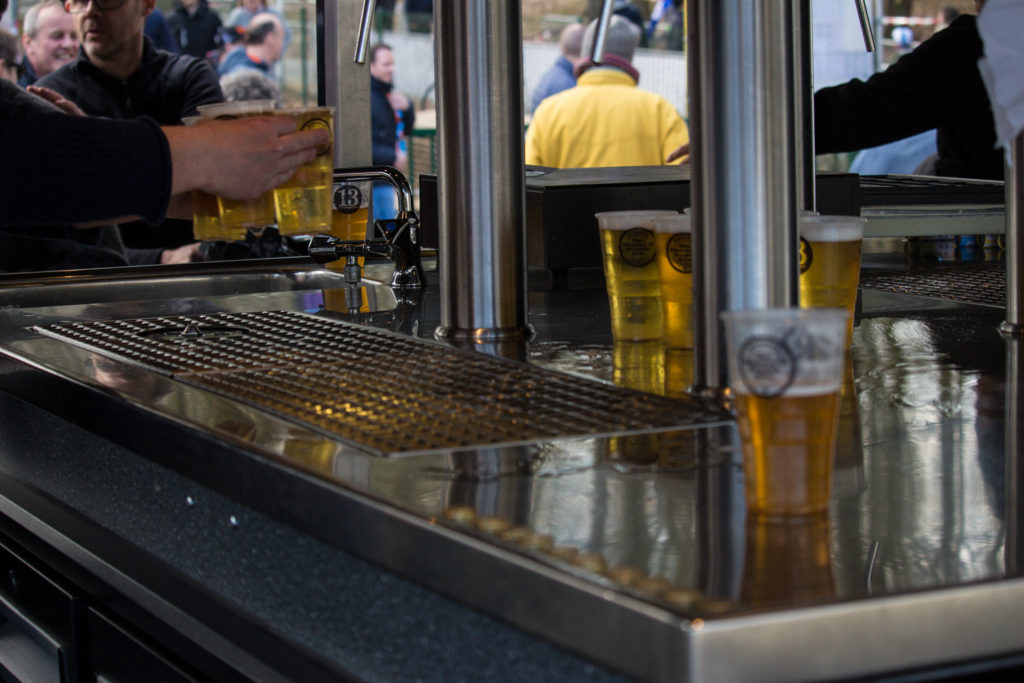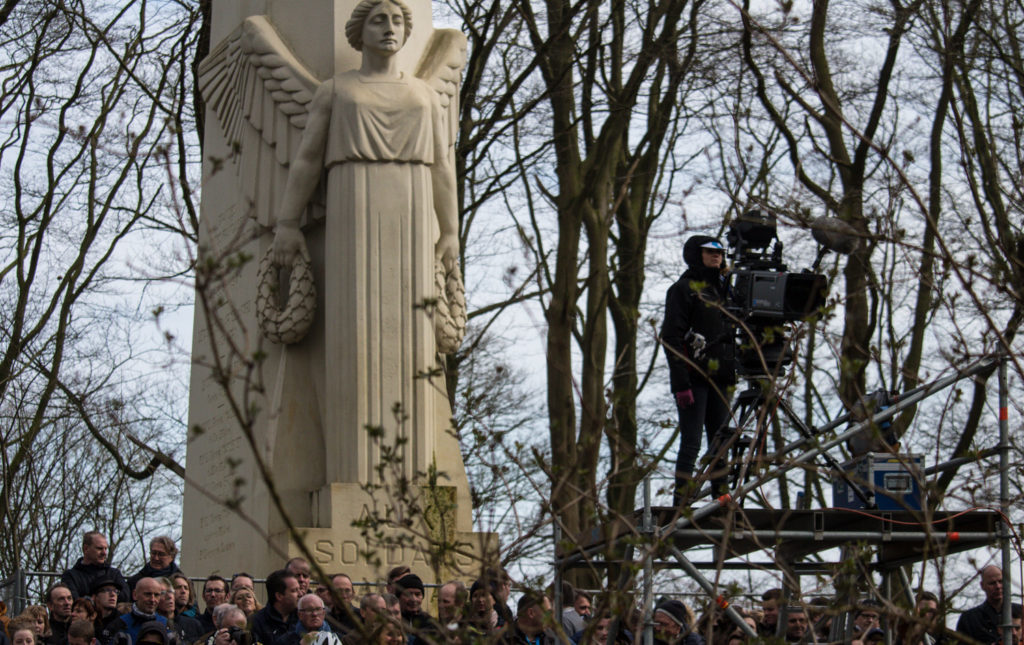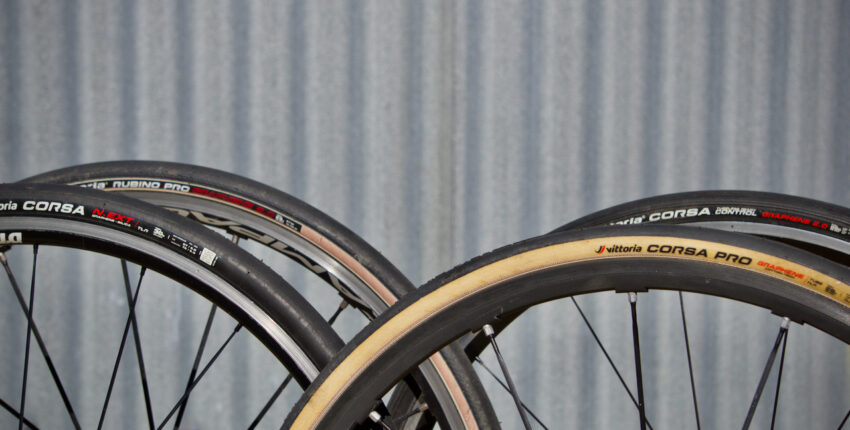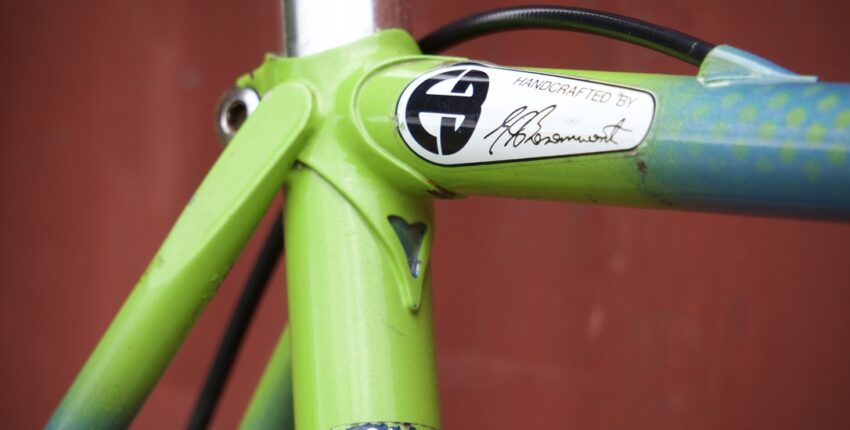The Flandrian Diaries: Gent-Wevelgem
As we exited Rick’s Hungarian SUV that I still didn’t believe was a bonafide thing and something he’d made up, the smell of freshly ploughed fields and the unmistakable cowshit filled our noses. But there was something else that had our senses abuzz: “bicycle racing in Flanders… YES!”
Strolling along through a mix of centuries-old farmhouses and incom[plete modern dwellings on a road now so familiar it feels almost local. The Espoirs are coming soon we’re told, we’ll have to walk around and rejoin the main road after an off-road jaunt. The under 23s are strewn out all over the countryside as their race draws to its conclusion, the faces at the back wracked with a mix of pain and resignation, all ambition shifted from glory to survival.
Though this part of the world could be described as the middle of nowhere, it holds significant importance for not only the bike racing fraternity, but in its role in world history. The battles of WW1 are never far from the psyche, graveyards dotting the rolling hills and visible through hedges, every town with a memorial to the fallen. For this dual citizen, the many tributes to the Australian and New Zealand soldiers always make for pause. Our destination, the Kemmelberg, the highest point for miles around, held the invaders at bay and became the most important strategic position over 100 years ago. Today it will play as vital a role, but the stakes aren’t a life and death proposition.
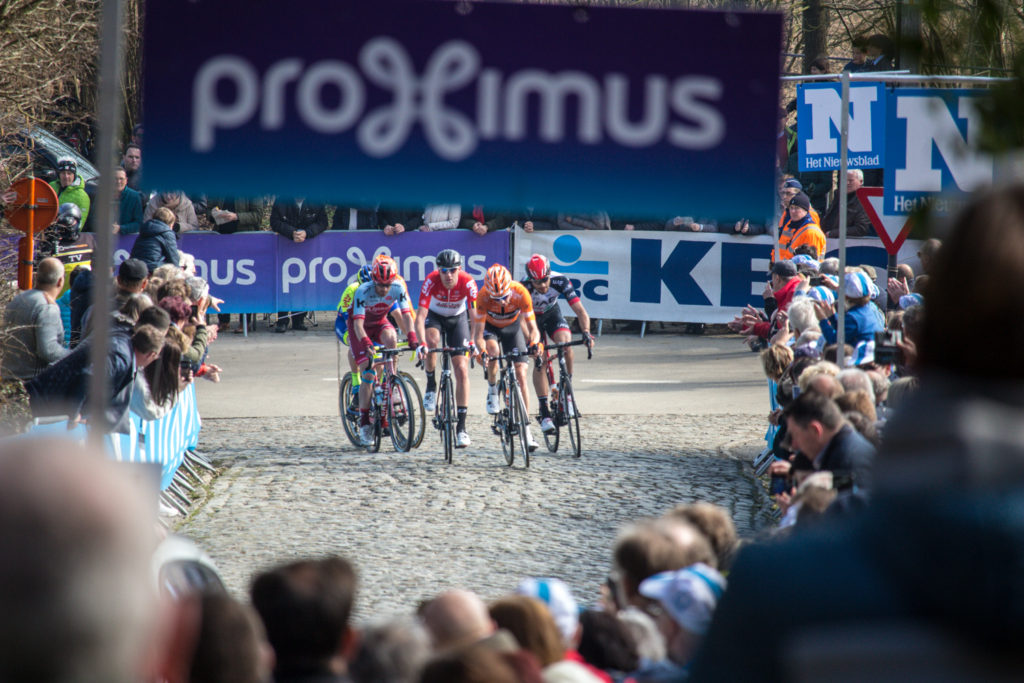
The lower slopes of the shallower side of the berg greets the riders first, not particularly long or steep, but add in the cobbles and the pinch at the top and it becomes a key plaayer in the race tactics. The morning’s break still holds steady before the peloton arrives en masse with key teammates at the front, holding it together for their captains to deliver their own blows the second time up, but on the other, steeper side.
I wonder how many of the spectators are bike racing tragics and how many are here for the atmosphere, or have been cajoled along by their own tragics. The fashions are always a pot pourri, the classic old school jerseys mixing with the smart casual and the Sunday Best.
The throng watches every last rider, those who’ve done their duty or just don’t have the firepower, ascend the cobbles as the convoy rattles along behind them, before dashing the few metres to the base of the climb to see the riders pass again only minutes later.
We join the masses walking up the ancient stones that moments before hosted the world’s best, now under the pounding of feet rather than tyres. Already the disassembly is underway, barriers rolled away before they can be souvenired, fencing folded into slow moving vans.
The top of the hill is alive with activity as the race continues on far below us, now criss-crossing the Flanders Fields, every few minutes another memorial acknowledged on the big screen, adding solemnity to the excitement of the race now becoming more urgent.
It’s easy to lose your companions on this hill, thankfully only in the temporary sense unlike a century ago. From a sea of people Andy spots me shooting him, once again the metaphor kinder than the historical sense.
There cannot be a bicycle race in Belgium without beer, and it flows steadily on the sunny but crisp Sunday afternoon. Drunkenness isn’t apparent until the very end, when some good-hearted singing rings out as the finish looms digitally in front of us.
The conversations around us vary from idle chit-chat to in-depth analysis of who’s doing what, and why. The bunch is considerably larger than most anticipated, and the title of the “sprinter’s Classic” may be well-founded today.
The aromas of the late afternoon snacks waft around, and I wonder if this will be dinner for those people, or is there a slow cooker doing its thing somewhere nearby, or perhaps far away. The nutritional value is well outweighed by the grease and meat factor, good luck if you’re vegetarian in this arena. Beer it is, at least one is required says Rick, a long drive back to The Hague awaiting him after hostilities subside.
The kilometres tick down, the attacks not as forthcoming as most anticipated, or hoped. There’s enough Flandrians in the group to deliver a ‘hometown’ win, and a couple try their luck from long, mid and short range depending on their arsenal. But it’s a conqueror of the world from the Eastern Bloc who makes the decisive volley, with timing and positioning that leaves no-one surprised except his rivals. The respect from the masses is telling, there won’t be a Flemish king today, but the celebrations will go on regardless.

